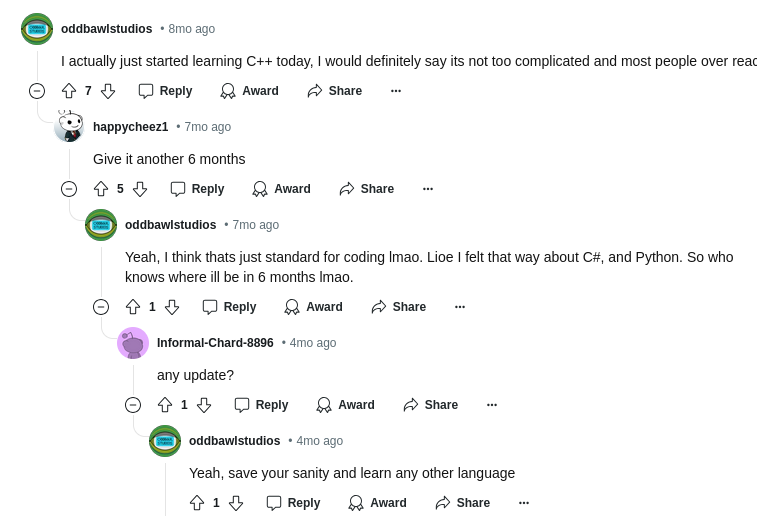this post was submitted on 02 Sep 2024
887 points (99.0% liked)
Programmer Humor
35929 readers
95 users here now
Post funny things about programming here! (Or just rant about your favourite programming language.)
Rules:
- Posts must be relevant to programming, programmers, or computer science.
- No NSFW content.
- Jokes must be in good taste. No hate speech, bigotry, etc.
founded 5 years ago
MODERATORS
you are viewing a single comment's thread
view the rest of the comments
view the rest of the comments


I think the thing with C++ is they have tried to maintain backward compatibility from Day 1. You can take a C++ program from the 80s (or heck, even a straight up C program), and there's a good chance it will compile as-is, which is rather astonishing considering modern C++ feels like a different language.
But I think this is what leads to a lot of the complexity as it stands? By contrast, I started Python in the Python 2 era, and when they switched to 3, I was like "Wow, did they just break hello world?" It's a different philosophy and has its trade-offs. By reinventing itself, it can get rid of the legacy cruft that never worked well or required hacky workarounds, but old code will not simply run under the new interpreter. You have to hope your migration tools are up to the task.
C++ is not a superset of C.
There were breaking changes between C and C++ (and some divergent evolution since the initial split) as well as breaking changes between different releases of C++ itself. I am not saying these never happened, but the powers that be controlling the standard have worked hard to minimize these for better or worse.
If I took one of my earliest ANSI C programs from the 80s and ran it through a C++23 compiler, I would probably need to remove a bunch of
registerstatements and maybe check if an assumption of 16-bitintis going to land me in some trouble, but otherwise, I think it would build as long as it's not linking in any 3rd party libraries.